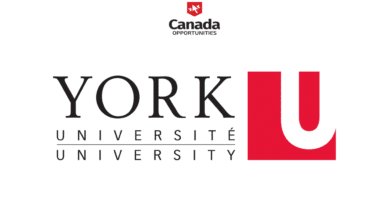14 Tips on How to get a PhD Scholarship in Canada
How to get a PhD Scholarship in Canada

How to get a PhD Scholarship in Canada
Canada is an attractive destination for students seeking a PhD due to its world-class universities, research facilities, and diverse research opportunities.
However, pursuing a PhD can be expensive, and many students rely on scholarships to finance their studies. In this blog post, we will discuss how to get a PhD scholarship in Canada.
14 Tips on How to get a PhD Scholarship in Canada
1. Research your options: There are many scholarships available for PhD students in Canada, but it’s essential to research your options to find the right fit for you.
Start by looking at the scholarship databases available, such as the Canadian government’s scholarship portal or the scholarship databases of individual Canadian universities.
2. Meet the eligibility requirements: Each scholarship has specific eligibility requirements that must be met, such as academic achievements, research experience, and language proficiency. Review the eligibility requirements carefully to ensure you meet them all before applying.
3. Develop a strong research proposal: Many PhD scholarships require applicants to submit a research proposal. Developing a strong research proposal that aligns with the scholarship’s research priorities can increase your chances of getting the scholarship.
4. Build a strong academic record: A strong academic record is essential when applying for PhD scholarships. Make sure to maintain high grades, participate in research activities, and seek out opportunities to showcase your academic achievements.
5. Apply early: It’s crucial to apply for scholarships early, as many scholarships have early application deadlines. Make sure to keep track of application deadlines and submit your application well before the deadline.
6. Seek out references: Many PhD scholarships require letters of reference from academic advisors or professors. Seek out references early and ensure that they can speak to your academic achievements and research potential.
7. Prepare a strong research proposal: A well-developed research proposal can help you stand out when applying for Ph.D. scholarships. Make sure to clearly outline your research objectives, methodology, and expected outcomes.
8. Seek out funding opportunities: In addition to scholarships, there are other funding opportunities available for PhD students, such as research assistantships and teaching assistantships. Seek out these opportunities and apply for them early to maximize your chances of securing funding.
10. Network with potential supervisors: Building connections with potential supervisors can increase your chances of securing a Ph.D. scholarship. Attend academic conferences, reach out to professors whose research aligns with your interests, and ask for advice on how to strengthen your application.
11. Be persistent: Securing a Ph.D. scholarship can be a competitive process, and it’s important to be persistent in your pursuit of funding.
Keep applying for scholarships and funding opportunities, seek out feedback on your applications, and continue to develop your research skills and experience and ensure that you are a strong candidate for the scholarship.
12. Be prepared for the interview: Some Ph.D. scholarships require an interview as part of the selection process. Be prepared for the interview by researching the scholarship, practicing your interview skills, and preparing responses to common interview questions.
13. Consider alternative funding sources: While PhD scholarships can provide valuable funding, they are not the only source of funding for graduate studies.
Consider alternative funding sources, such as research grants, fellowships, and bursaries, to supplement your funding and support your research.
14. Be open to different universities: While you may have a particular university in mind for your PhD studies, be open to different universities and departments that offer scholarships in your field.
Consider factors such as the research strengths of the department, the availability of funding, and the support and resources available for graduate students.
Conclusion
Securing a PhD scholarship in Canada requires a combination of hard work, strategic planning, and perseverance. By following these tips and exploring all available funding sources, you can increase your chances of securing a PhD scholarship and pursuing your research and academic goals in Canada.
FOLLOW OUR SOCIAL MEDIA CHANNELS
LINKEDIN, FACEBOOK, WHATSAPP, TELEGRAM and YOUTUBE
CHECK: How to Find a Job in Canada as an Immigrant
How to Understand the Canadian Job Market and Job Search Strategies
HIGH-PAYING JOBS IN CANADA – 10 jobs with a salary of $200k+




